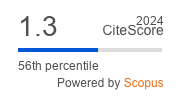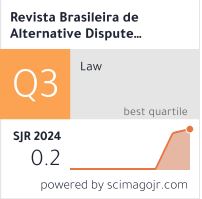Development of online mediation in Russia and the Republic of Kazakhstan
Schlagworte:
Alternative Dispute Resolution Methods, Mediation, Online Mediation, MediatorAbstract
Taking into account the practical and further legal implementation of alternative dispute resolution methods in the Russian Federation and the Republic of Kazakhstan, the legal community pays attention to the legislative consolidation of the status of mediation technology for dispute resolution, since the rights of citizens and legal entities and extrajudicial forms of protection of interests contribute to the development of social harmony, reducing conflict in society, as well as the development of cooperation relations in the long term. The authors drew attention to the implementation and increasing introduction of online mediation. However, in this regard, neither the Russian Federation nor the Republic of Kazakhstan have developed rules for virtual mediation, there are no regulations for conducting the procedure in the online space. The authors propose to standardize this institution. Today, the use of the mediation institute shows that this mechanism may be necessary as one of the universal ways to resolve conflicts and disputes. When studying the application of the mediation regulations of the two countries, some features and differences were identified, as well as general rules for the use of alternative dispute resolution methods. At the same time, there is no special regulation for virtual dispute resolution in the legislation of the countries under consideration. The authors recommend expanding the scope of virtual mediation in school life, using this institution more widely in intellectual property law and in other legal relations. Despite the fact that in the countries represented, various ways are used to achieve a mutually acceptable solution between the parties in court and out of court, but, as a whole, the institute of mediation and the institute of online mediation need to be expanded and standardized according to certain models, depending on the disputes under consideration.
Literaturhinweise
BEISSENOVA A., NURBEKOVA ZH., ZHANAZAROVA Z., DZYURENICH Y., TUREBAYEVA A. Labour Conflicts in Kazakhstan: A Specific Character of their Solution. Procedia – Social and Behavioral Sciences 82 ( 2013 ). Pages 877-881
DRONZINA T. Mediation. Astana: public opinion. 72 p., 2015.
ESPIUGUES C. Mediation and private international law: improving free circulation of mediation agreements across the EU IN-DEPTH ANALYSIS. p.1, November. 2016.
GARCIA S., IRIARTEREDIN C. Evaluation of a School Mediation Experience. Procedia – Social and Behavioral Sciences. Volume 84, 9 July 2013. Pages 182-189.
GUO M. Internet court’s challenges and future in China. Computer Law & Security Review. Volume 40, April 2021.
GURKO T. A. Formation of the institute of mediation in the field of family disputes in Russia: laws, theories and practices // Sociological science and social practice. , v. 4. n. 2(14), p. 41, 2016.
GONZALEZ-MARTÍN N. Mexico-U.S. cross-border family mediation: legal issues in Mexico. Mexican Law Review. Volume 9, Issue 2, January-June 2017. Pages 129-139.
PALANISSAMY A., KESAVAMOORTHY R. Automated Dispute Resolution System (ADRS) – A Proposed Initial Framework for Digital Justice in Online Consumer Transactions in India Procedia Computer Science Tom 165, 2019, Pages 224-231.
PRATIC D. The concept of conflict in organizational behavior, types and sources of conflicts. Channel of India. p.40, 2021.
RADULESCU DR. M.. Mediation an alternative way to solve conflicts in the international business environment. Procedia – Social and Behavioral Sciences 62 ( 2012 ). Pages 290-293.
RAZVAN-LUCIAN A., STEFU J., OLTEANU C. Mediation in Romania context and principles of action. Procedia – Social and Behavioral Sciences 84 ( 2013 ). Pages 1128-1132
KUTSENKO T.M. The problems of the implementation of mediation procedures in the proceedings on administrative offenses. Administrative law and process. n. 1, p. 46-49, 2022.
KROBKA N. N. Activities of WIPO on dispute resolution in the field of intellectual property. Scientific notes of the V. I. Vernadsky Crimean Federal University Legal sciences. v . 6 (72), n. 1, p. 334349, 2020
MANIA K. Online dispute resolution: The future of justice. International Comparative Jurisprudence. Volume 1, Issue 1, November 2015, Pages 76-86.
SINGH MALIK N., KHARITONOVA Y., YANG T. The legal issue of deterrence of algorithmic control of digital platforms: the experience of China, the European Union, Russia and India. BRICS LAW JOURNAL Volume X (2023) Issue 1, Pages 147-170 https://www.researchgate.net/publication/370130377.
NOSYREVA E. Alternative means of dispute registration in the USA. Economy and law. n. 1, pp. 90-96, 1998.
SANNIKOVA L., KHARITONOVA Y. Digital Platforms in China and Europe: Legal Challenges. BRICS Law Journal. October 2021, p. 139. Pages 121-147 https://www.researchgate.net/publication/355661498 Digital Platforms in China and Europe: Legal Challenges
SAVINA V.S. Mediation in the field of intellectual property: opportunities and prospects of application. Intellectual property. Copyright and Mixed Rights, n. 10, pp. 35-42, 2017.
SHARAPOVA A., MARKOV S. Mediation in Russia and China: similarities and differences in the interpretation of an alternative dispute resolution procedure (mediation). American
Scientific Journal. 2017. Vol. 3 (11). Pages 32-39. https://www.researchgate.net/publication/330728850_MEDIACIA_V_ROSSII_I_KITAE_SHODSTVA_I_RAZLICIA_V_TRAKTOVKE_ALTERNATIVNOJ_PROCEDURY_RAZRESENIA_SPOROV_MEDIACII (accessed: 02.11.2023)
SUNG H.C. Can Online Courts Promote Access to Justice? Обзор компьютерного права и безопасности. Tom 39, ноябрь 2020.
TLEMBAYEVA ZH.U. Out-of-court registration of legal disputes, appeals from administrative and other social and legal relations in the Republic of Kazakhstan: state and prospects of development. https://online.zakon.kz/Document/?doc_id=37502772 (accessed 16.10.2023).
Downloads
Veröffentlicht
Ausgabe
Rubrik
Lizenz

Dieses Werk steht unter der Lizenz Creative Commons Namensnennung 4.0 International.
No royalties or other compensation shall be due for the publication of the works.
The opinions expressed by the authors of the articles and reviews are their sole responsibility.









